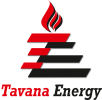Iran Petroleum Contract (IPC) is the latest Iranian oil contract. It is a risked service contract (RSC) which is promoted as a hybrid model, as it is not a PSC, but aims to include some of its advantages. Booking of reserves is still a red-line but several shortfalls of the generation three of Iranian buy-backs are addressed.
At the IPC licensing rounds, IOCs will bid coefficients for different aspect of the development plan including but not limited to minimum contractual work commitment, production plateau, unit Opex, fee per barrel, and the speed of cost recovery. Technology transfer and building local capacities are among the strategic objectives of the IPC. To serve this purpose IPC has a tiered base remuneration system that allows increase of the fees to IOC on each produced barrel if the target is overachieved. The model is designed to encourage IOC to deploy the latest technological advancement in the domain of reservoir management, optimization and production.
See the following table for the improvements of the IPC over Iranian buy-back contracts.
| IPC improvements over buy-backs | |
| Term | 25+ years (versus 5-10 Y in case of buy-backs). |
| JV | In buy-backs the NIOC subsidiaries acted as the Owner. In IPC the IOC, Local Partner and NIOC subsidiary form a JV and jointly develop the field. |
| Capex | Capex is not preset anymore. JV will create the master development plan and has provisions to allow changes in Capex if needed. A yearly budget and work-plan will be developed and approved by the JV. |
| Complexity Factor | Risk-reward factors linked to the complexity of each field are included. These factors allow higher fees paid to IOC for ‘high risk’ fields compared to ‘low risk’ ones. |
| Remuneration | Cost recovery plus fee per barrel; in cash or in-kind. |
| Asset Life-Cycle | Allows smooth transition over various stages of the reservoir i.e. exploration, development, production and EOR/IOR without retendering. |
| Marketing | Allows IOC to market products if they choose to. |
| SCR | Encourages IOC to undertake civil and other social projects (e.g. hospitals) in oil-producing regions. |
| Transparency | Higher financial transparency to reduce risk of corruption. |
| Local content | Although more than 51% of project budget need to be expended locally, but share of IOC and Local Partner in a project may vary, based on the size of investment and type of project. |
Please learn more about IPC here: Iran Petroleum Contract
